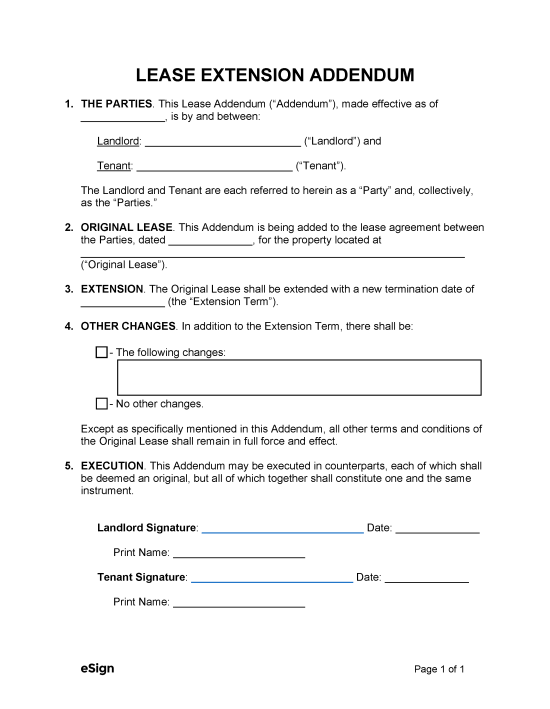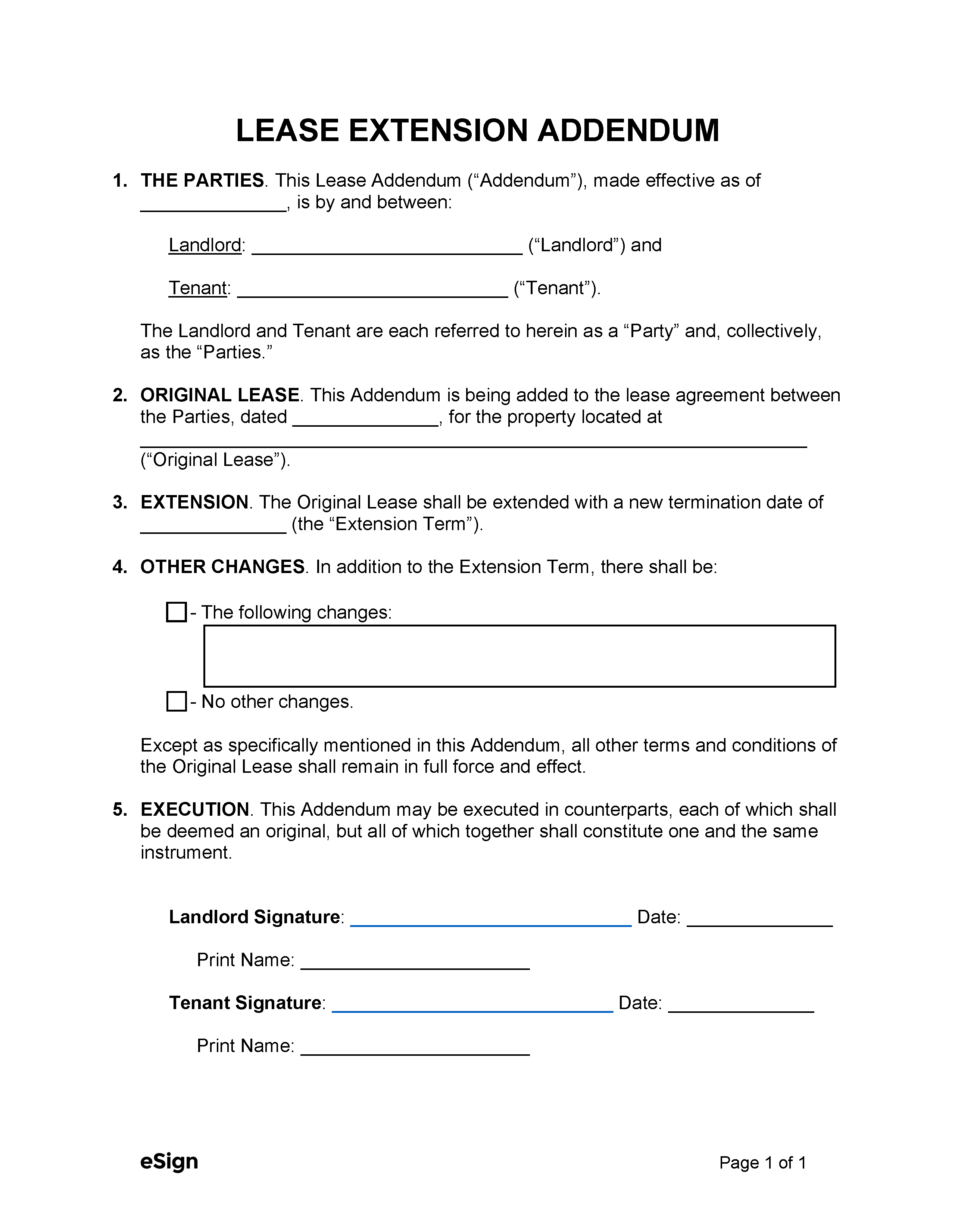Extension Addendum vs. New Lease
If the parties to a residential or commercial lease agreement wish to extend the termination date, drafting an addendum to the original agreement is more practical than creating a new lease agreement
Using an Extension Addendum
Either party can initiate the process of extending a lease agreement using an addendum. Tenants often draft extension addenda because they are satisfied with the property and rent amount. Landlords may want to continue the relationship because they know the tenant pays rent on time and is well-behaved, making it easier to extend the lease rather than find a new tenant.
The following steps can be followed to execute a lease extension addendum:
- Review the original lease.
- Draft addendum with a new lease termination date (and any additional terms, if applicable).
- Sign the document and deliver it to the other party.
- The terms are negotiated and the other party signs the document.
- The parties retain a copy for their records.
Creating a New Lease
If the parties would like to enter into a new lease instead of signing a lease extension addendum, the landlord is required to do the following:
- Return the security deposit to the tenant (with a statement on any deductions);
- Provide a move-out inspection disclosure (if applicable);
- Draft and sign a new lease agreement;
- Provide the tenant with all required state disclosures; and
- Collect the updated security deposit and first month’s rent amount (if applicable).
Sample
Download: PDF, Word (.docx), OpenDocument
1. THE PARTIES. This Lease Addendum (“Addendum”), made effective as of [MM/DD/YYYY], is by and between:
Landlord: [LANDLORD’S NAME] (“Landlord”) and
Tenant: [TENANT’S NAME] (“Tenant”).
The Landlord and Tenant are each referred to herein as a “Party” and, collectively, as the “Parties.”
2. ORIGINAL LEASE. This Addendum is being added to the lease agreement between the Parties, dated on [MM/DD/YYYY], for the property located at [RENTAL PROPERTY ADDRESS] (“Original Lease”).
3. EXTENSION. The Original Lease shall be extended with a new termination date of [MM/DD/YYYY] (the “Extension Term”).
4. OTHER CHANGES. In addition to the Extension Term, there shall be:
☐ – The following changes: [INSERT ADDITIONAL TERMS]
☐ – No other changes.
Except as specifically mentioned in this Addendum, all other terms and conditions of the Original Lease shall remain in full force and effect.
5. EXECUTION. This Addendum may be executed in counterparts, each of which shall be deemed an original, but all of which together shall constitute one and the same instrument.
Landlord’s Signature: ___________________ Date: [MM/DD/YYYY]
Print Name: [LANDLORD’S NAME]
Tenant’s Signature: ___________________ Date: [MM/DD/YYYY]
Print Name: [TENANT’S NAME]

